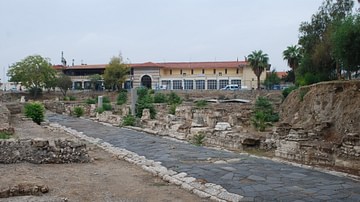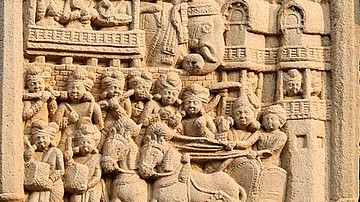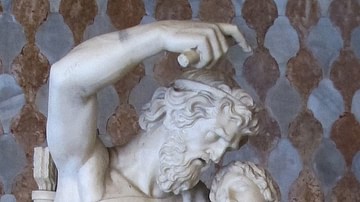Search
Search Results

Definition
Ashurbanipal
Ashurbanipal (r. 668-627 BCE, also known as Assurbanipal) was the last of the great kings of Assyria. His name means "the god Ashur is creator of an heir" and he was the son of King Esarhaddon of the Neo-Assyrian Empire. In the Hebrew Tanakh...

Definition
Amorite
The Amorites were a Semitic people who seem to have emerged from western Mesopotamia (modern-day Syria) at some point prior to the 3rd millennium BCE. In Sumerian they were known as the Martu or the Tidnum (in the Ur III Period), in Akkadian...

Definition
David Hume
David Hume (1711-1776) was a Scottish philosopher, writer, historian, and important figure in the Enlightenment. Hume presented a positive view of human nature but a sceptical view of religion's usefulness. His Treatise of Human Nature was...

Definition
Tarsus
Tarsus was a city in ancient Cilicia located in the modern-day province of Mersin, Turkey. It is one of the oldest continually inhabited urban centers in the world, dating back to the Neolithic Period. It was built close by the Cydnus River...

Definition
Council of Trent
The Council of Trent (1545-1563) was a meeting of Catholic clerics convened by Pope Paul III (served 1534-1549) in response to the Protestant Reformation. In three separate sessions, the council reaffirmed the authority of the Catholic Church...

Definition
Kabbalah
The term Kabbalah refers specifically to the form of Jewish mysticism that became widespread in the Middle Ages. However, in recent decades it has essentially become a generic term for the entirety of Jewish mystical thought. Literally meaning...

Definition
Ajatashatru
Ajatashatru (c. 493/492 BCE - c. 462/460 BCE) was the second important king of the Haryanka Dynasty, who came to the throne of Magadha by deposing and executing his own father Bimbisara. The Haryanka Dynasty (c. 545/544 BCE - c. 413 BCE...

Definition
Alcibiades
Alcibiades (or Alkibiades) was a gifted and flamboyant Athenian statesman and general whose shifting of sides during the Peloponnesian War in the 5th century BCE earned him a reputation for cunning and treachery. Good-looking and rich, he...

Definition
Eris
Eris is the Greek goddess and personification of discord and strife. She is an unpopular figure in Greek mythology due to her problematic behaviour and her ability to stir up trouble wherever she goes. Eris is most famous for her Golden Apple...

Definition
Chiron
Chiron (also spelt Cheiron) is a wise centaur (half-man, half-horse) in Greek mythology, who was a friend and tutor to many legendary Greek heroes, including Achilles and Jason. Chiron's parentage differed from the rest of the centaurs, as...